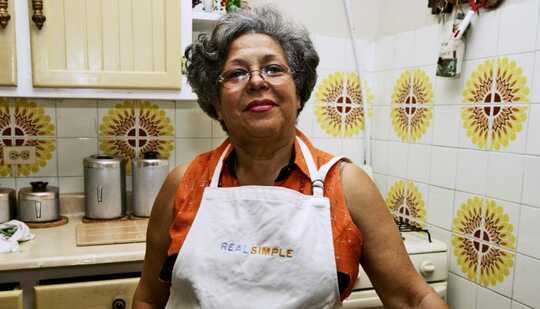
More older Americans are able to meet their daily care needs without assistance, a report shows, but concerning gaps remained for older Black and Hispanic people.
According to the report, over the past 10 years, older adults have experienced improvements in physical functioning, vision, and hearing, and, through 2019, lower rates of dementia. As a result, fewer are living in nursing homes and assisted living settings, and fewer of those in the community are receiving help. More are using assistive devices in their daily activities and the percentage going online for activities has also increased dramatically.
“This study suggests the daily lives of older adults are changing and, on balance, trends are encouraging, especially for older women,” says University of Michigan researcher Vicki Freedman, who initiated the project using data from the National Health and Aging Trends Study.
The findings are from a recently released series of online dashboards and chartbooks that tracks nationwide trends for adults ages 70 and older from 2011 through 2020.
But not everyone has benefited, according to Freedman, a research professor in the Survey Research Center at the Institute for Social Research and director of the Michigan Center on the Demography of Aging.
Get The Latest By Email
Women had improvements across the board, whereas men experienced fewer gains. Black and Hispanic Americans began the decade with a disability disadvantage and continue to lag behind.
“Women have always been more likely than men to experience disability in later life,” says Johns Hopkins Bloomberg School of Public Health researcher Judith Kasper, who co-leads the National Health and Aging Trends Study with Freedman and collaborated on the project. “It’s especially encouraging to see their gains were not cut short by the pandemic.”
Kasper, a professor of health policy and management, notes that although the COVID-19 pandemic transformed the daily lives of older adults in many respects, most findings in 2020 were continuations of trends that began in prior years. However, in 2020, sharp declines in participation in social activities—such as visiting friends and family—were common.
The researchers also note that concerning gaps remained for older Blacks and Hispanics in 2020. Older people of color were:
- Less likely to successfully accommodate self-care and mobility limitations with assistive devices
- More likely to receive assistance with self-care and mobility and with household activities related to their health and functioning
More likely to experience unmet needs related to self-care and mobility and household activities - More likely to have low physical capacity, poor vision, and, in 2019, dementia; Hispanics were more likely to have poor hearing as well
- Less likely to have bathing-related home modifications; Hispanics were less likely to have toileting-related home modifications
- Less likely to communicate by email or texting and to go online for social networking, household activities, and health-related activities.
“While there are some encouraging trends in function for older Americans as a whole, there are also disparities in function that can be addressed with accommodations,” says John W. R. Phillips, chief of the NIA Population and Social Processes Branch. “This data can inform the public and policymakers on remedies to both maintain positive trends and reduce measured disparities.”
Begun in 2011, the National Health and Aging Trends study fosters research to reduce disability, maximize independent functioning, and enhance quality of life at older ages. The study, funded by the National Institute on Aging (NIA), gathers annual information on disability and functioning from a national sample of Medicare beneficiaries ages 65 and older.
Source: University of Michigan
books_health







